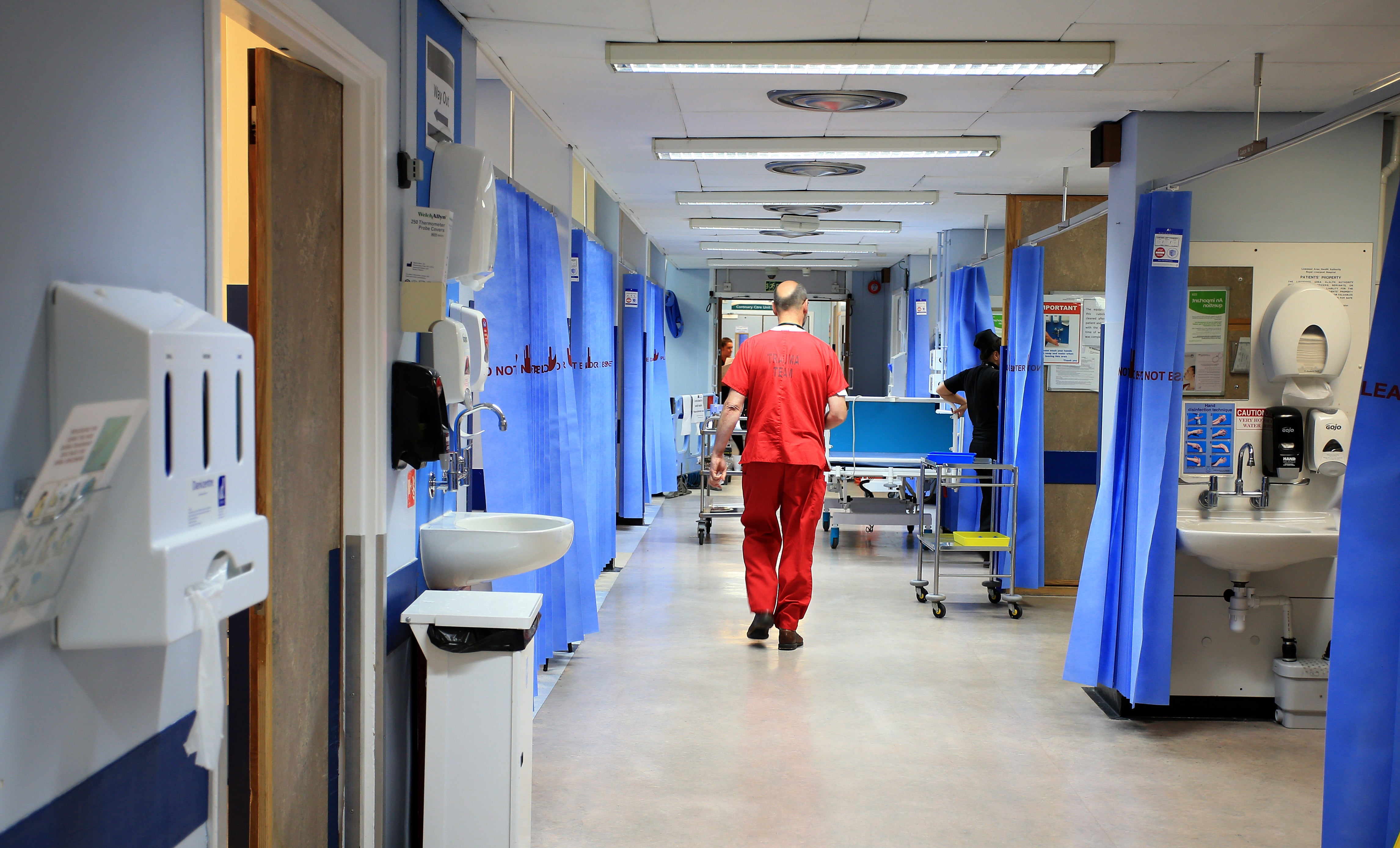Ireland better than NI in terms of life expectancy and infant mortality: report
The major difference between the two systems is the absence of a universal healthcare system in Ireland.

Your support helps us to tell the story
From reproductive rights to climate change to Big Tech, The Independent is on the ground when the story is developing. Whether it's investigating the financials of Elon Musk's pro-Trump PAC or producing our latest documentary, 'The A Word', which shines a light on the American women fighting for reproductive rights, we know how important it is to parse out the facts from the messaging.
At such a critical moment in US history, we need reporters on the ground. Your donation allows us to keep sending journalists to speak to both sides of the story.
The Independent is trusted by Americans across the entire political spectrum. And unlike many other quality news outlets, we choose not to lock Americans out of our reporting and analysis with paywalls. We believe quality journalism should be available to everyone, paid for by those who can afford it.
Your support makes all the difference.Ireland performs better in terms of life expectancy and infant mortality than Northern Ireland, a new report has found.
The research, carried out by the ESRI and the Shared Island Unit in the Taoiseach’s department, also found there are higher levels of unmet healthcare needs due to affordability issues in Ireland relative to Northern Ireland.
The primary care systems of both jurisdictions were examined and analysis also sought to identify what comparable data are currently available on the two healthcare systems.
The major difference between the two systems is the absence of a universal healthcare system in Ireland.
In Northern Ireland, all residents are entitled to a wide range of health and social care services that are almost entirely free at the point of use, while in Ireland, a majority of the population pay for a range of healthcare services.
These include seeing a GP and other primary care services.
However the report found that despite the differences, both systems are grappling with similar challenges including increasing demand for healthcare services, increasing expenditure and workforce shortages.
The research found that for both socio-economic and health status, the available evidence suggests that one system does not consistently do better than the other.
However, in terms of some population health measures, including life expectancy and infant mortality, Ireland has performed better than Northern Ireland in recent years.
In terms of potentially avoidable hospital admissions – which might have been prevented if timely and effective primary care was delivered – neither system consistently performed better than the other.
The proportion of invited participants availing of a range of preventive services such as screening and vaccinations was also found to appear similar.
Meanwhile there was found to be higher levels of unmet healthcare needs due to affordability issues in Ireland relative to Northern Ireland.
However the report found long waits to access care in both jurisdictions, driven by the Covid-19 pandemic.
Both jurisdictions saw a significant increase in the proportion waiting more than 12 months for both out-patient and day and in-patient services, with this increase particularly evident in Northern Ireland.
Between 2017 and 2021, for day and in-patient services, the proportion on the waiting list for more than one year has increased from 12% to 20% in Ireland and from 20% to 60% in Northern Ireland.
But the report also found that a lack of comparable data on healthcare system indicators across Ireland and Northern Ireland “significantly limits the type of analysis that could be undertaken”.
It notes that significant challenges in both systems, particularly around waiting lists and recruitment, “might provide fresh impetus for at least exploring the potential for greater cooperation in relation to health matters”, but added there is a need for “significant reform in data collection and sharing”.
Lead author of the report Dr Sheelah Connolly said the research suggests recent improvements in population health indicators in Ireland which have not been seen in Northern Ireland.
“Similarities and differences between the healthcare systems of Ireland and Northern Ireland provide an opportunity to examine how different systems and policies influence outcomes,” she said.
“The analysis carried out for this Shared Island research suggests that there have been improvements in population health indicators in Ireland in recent years, which have not been experienced to the same extent in Northern Ireland.
“Further research should be undertaken to understand the reasons for these differences as this may provide evidence on how to improve population health.”